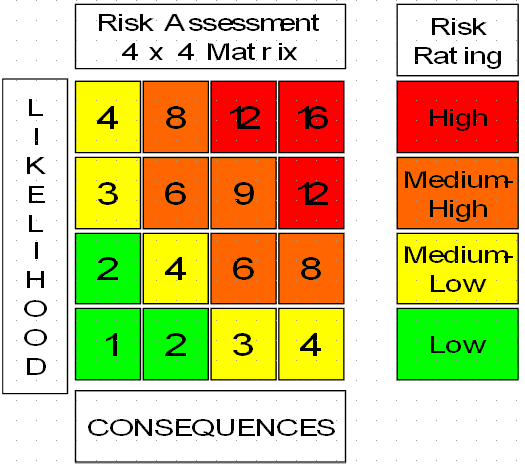
Supply chain management courses are offered by universities around the world. These courses can teach you all about the concepts, principles, and methodologies of the field. In addition, they can give you the skills you need to manage your business. You may even be able to get certified in this field. Depending on your interests, you have the option of studying at university, online, and in private training centers.
Concepts
Students will learn how to manage the entire supply chain of a company in Supply Chain Management courses. They will also be able to apply concepts like purchasing, quality control, and lean management to their supply chain. Students will also learn about the various types of analytics used in today's supply chains, and how to apply them to various business scenarios. Students will learn about stochastic demand, lead times, queue psychology, and design for logistics.

Principles
The principles of supply chain management will help you manage your business so that it ensures quality and availability of goods and services. Supply chain management refers to the design, planning and management of the entire supply network. The principles of supply-chain management are designed to help businesses meet customer demands and control costs.
Methodologies
Methodologies of supply chain management courses cover the latest trends and techniques for successful supply chains. These courses teach students about the importance of data-driven analysis and how they can be used to provide prescriptive actions. Students are taught how to apply data-driven analytical tools to three real-world supply chains projects. Students also learn about ethical issues and customer-supplier relations.
Prices
Companies need strategies and tactics to optimize operations, in order reduce supply chain costs. Companies must also take decisions that lower costs and increase productivity. Such decisions can affect the company's bottom line. These courses can be used to help companies reach their supply chain management goals.
Internships
Supply chain management internships are a great way to gain valuable experience and develop skills in a business environment. These internships are a low-risk and high-reward way to learn about supply chain management, while also working for a reputable company. You'll see inside a large company and be exposed to senior leadership. You'll also gain valuable hands-on experience in logistics and business operations.

Requirements
You will need to be able to meet the prerequisites to pursue a career supply chain management. You should be familiar with statistics and operations management, in order to enroll in a course. You must also be comfortable working with computers. Online courses in supply chain management can only be taken by those who have reliable internet access.
FAQ
How can a manager enhance his/her leadership skills?
By practicing good management skills at all times.
Managers must continuously monitor the performance levels of their subordinates.
If you notice your subordinate isn't performing up to par, you must take action quickly.
You must be able to spot what is lacking and how you can improve it.
How to manage employees effectively?
The key to effective management of employees is ensuring their happiness and productivity.
This includes setting clear expectations for their behavior and tracking their performance.
Managers need clear goals to be able to accomplish this.
They need to communicate clearly and openly with staff members. They should also ensure that they both reward high performers and discipline those who are not performing to their standards.
They must also keep records of team activities. These include:
-
What was accomplished?
-
How much work did you put in?
-
Who did it, anyway?
-
What was the moment it was completed?
-
Why did it happen?
This information can help you monitor your performance and to evaluate your results.
What role does a manager play in a company?
Managers' roles vary from industry to industry.
The manager oversees the day-to-day activities of a company.
He/she ensures the company meets its financial commitments and produces goods/services that customers demand.
He/she will ensure that employees follow all rules and regulations, and adhere to quality standards.
He/she is responsible for the development of new products and services, as well as overseeing marketing campaigns.
What is TQM and how can it help you?
The industrial revolution led to the birth and growth of the quality movement. Manufacturing companies realized they couldn't compete solely on price. They needed to improve the quality and efficiency of their products if they were to be competitive.
To address this need for improvement management created Total Quality Management (TQM) which aimed to improve all aspects of an organization's performance. It included continuous improvement, employee involvement and customer satisfaction.
Statistics
- The BLS says that financial services jobs like banking are expected to grow 4% by 2030, about as fast as the national average. (wgu.edu)
- UpCounsel accepts only the top 5 percent of lawyers on its site. (upcounsel.com)
- The profession is expected to grow 7% by 2028, a bit faster than the national average. (wgu.edu)
- Our program is 100% engineered for your success. (online.uc.edu)
- The average salary for financial advisors in 2021 is around $60,000 per year, with the top 10% of the profession making more than $111,000 per year. (wgu.edu)
External Links
How To
How do you implement Quality Management Plans (QMPs)?
QMP, which was introduced by ISO 9001:2008, is a systematic approach to improving products, services, and processes through continuous improvement. It provides a systematic approach to improving processes, products and customer satisfaction by continuously measuring, analysing, controlling, controlling, and improving them.
QMP is a standard way to improve business performance. QMP's goal is to improve service delivery and production. QMPs should address all three dimensions: Products, Services, and processes. If the QMP only covers one aspect, it's called a "Process QMP". If the QMP is focused on a product/service, it's called a QMP. And when the QMP concentrates on Customer Relationships, it is called "Customer" QMP.
When implementing a QMP, there are two main elements: Scope and Strategy. They can be described as follows:
Scope: This defines what the QMP will cover and its duration. For example, if your organization wants to implement a QMP for six months, this scope will define the activities performed during the first six months.
Strategy: This describes the steps taken towards achieving the goals set forth in the scope.
A typical QMP consists of 5 phases: Planning, Design, Development, Implementation, and Maintenance. Each phase is explained below:
Planning: In this stage, the objectives of the QMP are identified and prioritized. All stakeholders involved in the project are consulted to understand their requirements and expectations. After identifying the objectives, priorities, and stakeholder involvement, the next step is to develop the strategy for achieving these objectives.
Design: During this stage, the design team develops the vision, mission, strategies, and tactics required for the successful implementation of the QMP. These strategies are executed by creating detailed plans.
Development: Here the development team works toward building the necessary resources and capabilities to support the successful implementation.
Implementation: This involves the actual implementation of the QMP using the planned strategies.
Maintenance: This is an ongoing procedure to keep the QMP in good condition over time.
Additionally, the QMP should include additional items:
Participation of Stakeholders: The QMP's success depends on the participation of stakeholders. They should actively be involved during the planning and development, implementation, maintenance, and design stages of QMP.
Initiation of a Project: A clear understanding and application of the problem statement is crucial for initiating a project. In other words, the initiator needs to know why they want to do something and what they expect from the outcome.
Time Frame: The time frame of the QMP is very critical. The simplest version can be used if the QMP is only being implemented for a short time. For a long-term commitment you may need more complicated versions.
Cost Estimation: Another important component of the QMP is cost estimation. Without knowing how much you will spend, planning is impossible. It is therefore important to calculate the cost before you start the QMP.
QMPs are not only a document, but also a living document. This is the most important aspect of QMPs. It changes as the company grows. It should be reviewed on a regular basis to ensure that it is still meeting the company's needs.